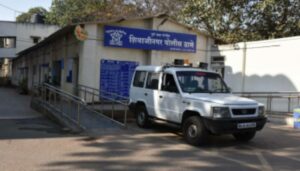Cow’s Milk Protein Allergy (CMPA) in Babies: A Misdiagnosed Condition in India

Dr. Sangeeta V. Budur, Consultant Pediatrics and PICU, Aster R V Hospital, Bangalore
In India, Cow’s Milk Protein Allergy (CMPA) remains an under-diagnosed health condition among babies, despite being the most common food allergy in this age group. While the diagnosis of CMPA is increasingly prevalent in Western countries, there is limited data available from India. It is estimated that CMPA affects approximately 2-7.5% of infants during their first year of life.
Given that cow’s milk is a staple in the diet of both Indian mothers and babies, it is crucial to raise awareness about CMPA, identify its symptoms, and provide early treatment to prevent serious consequences. Let’s explore some frequently asked questions to gain a better understanding of this condition and address common misconceptions.
Dispelling Myths about Cow’s Milk Feeding in Children
Contrary to popular belief, cow’s milk is not a suitable substitute for breast milk and is inferior to artificial milk formulas. Breast milk remains the superior choice and is a child’s birthright. The American Academy of Pediatrics recommends introducing cow’s milk only after the age of one, while continuing breastfeeding until the age of two. Before turning one, infants consuming cow’s milk are at risk of various complications. It contains excessive proteins and minerals that may harm a baby’s kidneys.
Understanding the Causes and Prevalence of CMPA
CMPA occurs when an infant’s immune system abnormally reacts to proteins found in cow’s milk and other animal milks, such as goat and sheep milk. This suggests an underlying genetic susceptibility to animal proteins. The incidence of CMPA is high, reaching up to 15% among infants under one year old. However, as children grow older, the risk decreases significantly, affecting less than 1% of children aged six and above. A family history of asthma, eczema, or any allergic disease increases the child’s vulnerability to CMPA.
Consequences of Untreated Symptoms
If symptoms of CMPA are left unaddressed, infants may experience recurrent wheezing, respiratory tract infections, unresponsive eczema, growth failure, and poor weight gain. In some cases, severe anemia can occur due to blood loss in stools and iron deficiency.
The Risk of CMPA in Breastfed Babies
Breastfed babies can also develop CMPA if the mother consumes dairy products, as proteins can pass into breast milk. However, the incidence of CMPA among breastfed infants is significantly lower, around 0.5%, compared to formula-fed babies. Breast milk offers protection against CMPA.
Knowing When to Consult a Child Specialist
Parents should trust their instincts and seek medical advice from a pediatrician if their child, particularly under the age of one, is unwell. It is crucial to accurately diagnose CMPA as misdiagnosis can lead to unnecessary dietary restrictions in infants and breastfeeding mothers. Interestingly, studies have shown that the prevalence of actual food allergies in children is lower than perceived by parents, with 35% of children under two years being labeled as having a food reaction, most commonly to milk.
Diagnosing CMPA
Diagnosis of CMPA primarily relies on clinical assessment. Typically, doctors recommend eliminating dairy products from both the mother’s and baby’s diet while ruling out other diseases, particularly infections, which may mimic CMPA. Once symptoms subside (which may take up to two weeks), doctors may suggest reintroducing dairy products through an oral challenge. Recurrence of symptoms during this challenge indicate.








